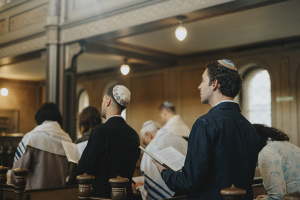Christian university presidents foolishly join hate crimes push

For years, left-leaning social activists have been attempting to push “hate crimes” legislation through Indiana’s part-time legislature and onto the Governor’s desk. Much to the chagrin of complicit state media like the Indy Star, which threw away any sense of objectivity on the issue a long time ago, it hasn’t happened to this point. But that may be about to change.
In late July, when vandals scrawled Nazi graffiti on the walls of a Jewish synagogue in an Indianapolis suburb, Governor Eric Holcomb stumbled all over himself hastily rushing in front of the nearest camera to call on lawmakers to rectify this grievous act by enacting a new statewide “hate/bias crimes” law. Despite supermajorities in both houses of the state legislature, it is likely that the upcoming session will see Republicans pass a law that they once understood was unnecessary at best, dangerous at worst.
Here’s why I say that:
1. Hate Crimes laws are, despite having been enacted in a vast majority of states, objectively unconstitutional. The 14th Amendment of the Constitution demands equal protection under the law for all citizens. That means the punishment inflicted on a criminal who kills me is not to be gentler nor harsher than if that criminal killed you. To enhance the penalty for killing one class of people is to provide them more protection under the law, not equal protection.
2. Hate Crimes laws are, despite their fanfare and appeals to emotion, completely unnecessary and in many ways harmful to justice. You need to look no further than Indiana to understand this. Current state law already permits a judge to take into consideration the personal characteristics of a victim that motivated a crime, and then enhance a penalty accordingly.
Hate Crimes laws like the one Governor Holcomb proposes, actually limit the ability of a judge to do this. For example, suppose an elderly man wearing a veteran’s cap was assaulted by Antifa because of his apparent service in the military. Currently, an Indiana judge could enhance the penalty for the attacker due to the specific motivation behind the crime. But since “military service” is not a protected characteristic under Holcomb’s proposed hate crimes law its enactment would leave certain groups of victims rendered vulnerable because they failed to make the government’s list of favorites.
Given these realities, plus the conveniently forgotten reality that no hate crime statute would have prevented the Nazi graffiti at that synagogue, we can fairly surmise that this entire effort is – like most progressive causes – about symbolism, not substance.
It’s Governor Holcomb pandering. That’s embarrassing enough. But what is far more concerning to me is that this political grandstanding has received endorsement from the presidents of six of the state’s leading Christian universities and colleges – The University of Notre Dame, Indiana Wesleyan University, Anderson University, Grace College and Seminary, St. Mary’s College, University of Saint Francis. Not that professing Christian intellectuals can’t be duped by smooth-sounding political pitches. It happens. But Christians have been commanded by Christ to exercise discernment in ways the world does not, and the failure to see the underlying, nefarious element to these kinds of legal campaigns is inexcusable.
It is no great secret that the loudest promoters of hate crimes laws are often the same social activists who champion so-called “non-discrimination” laws that include their favorite five words: “sexual orientation and gender identity.”
In states like Indiana, these activists have been unable to convince the legislature to add those words to discrimination statutes given the fact that (1) they don’t do anything to prevent discrimination, and (2) they almost always become a legal weapon for progressives to harass, bully, financially intimidate, and exact debilitating punitive fines and punishments on people whose conscience offends their agenda. Jack Phillips in Colorado comes to mind.
Thwarted at the front door of discrimination statutes, activists turn to the back door of hate crimes legislation to slip those words into the state’s law code. Codified as a legal “class” in one section of the law (hate crimes), it is judicially predictable to see it extrapolated outward to others (“non-discrimination”).
It’s the camel nose under the tent, all for no moral or legal good whatsoever. Yet in Indiana, a host of Christian universities have joined the Republican Governor in a move that would limit and deny justice, while simultaneously provide a springboard for future government harassment and censure of Christian citizens. Righteous discernment indeed.




























